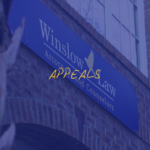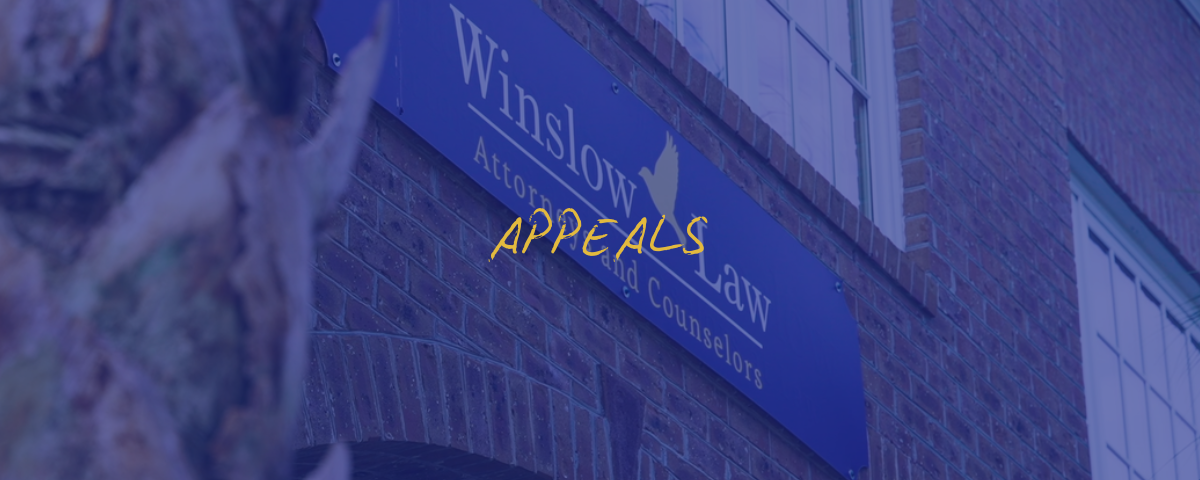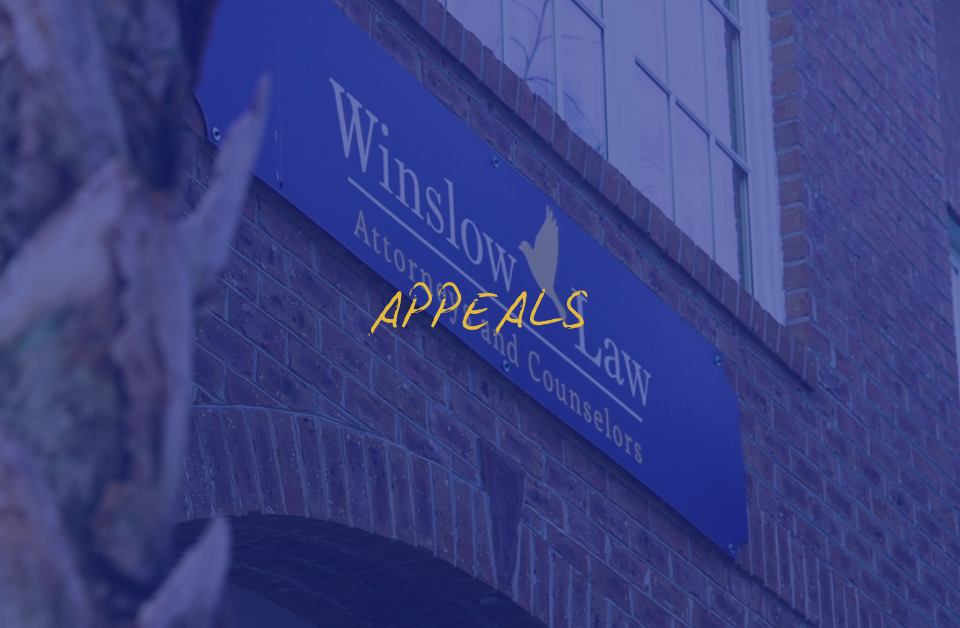
Understanding the Appeals Process in South Carolina Courts
January 12, 2025
How Appeals Shape Justice in South Carolina Communities
January 12, 2025When and Why to File an Appeal in South Carolina

Filing an appeal in South Carolina is a vital step in pursuing justice when a trial court’s decision seems unjust or legally flawed. Appeals are not about dissatisfaction with a verdict; they focus on correcting errors that could impact fairness, legal interpretation, or due process. At Winslow Law, we help individuals and businesses understand when and why an appeal is the right course of action.
Common reasons for filing an appeal include improper admission or exclusion of evidence, incorrect jury instructions, or a judge’s misapplication of the law. These errors can significantly affect the outcome of a case. Winslow Law’s attorneys have the experience to identify appealable issues and present them effectively to higher courts.
Appeals serve a broader purpose than individual cases. They provide a mechanism for refining legal standards and ensuring that trial courts adhere to established laws. In South Carolina, the appellate process strengthens the justice system by holding courts accountable and promoting consistency in legal rulings.
At Winslow Law, our community-centered approach means we see appeals as opportunities to achieve justice not just for our clients, but for society as a whole. We understand the emotional and financial challenges involved in appealing a case and are dedicated to providing compassionate guidance throughout the process.
FAQs
Q: What are valid reasons to file an appeal in South Carolina?
A: Common reasons include improper admission or exclusion of evidence, errors in jury instructions, or the trial court’s misapplication of the law. Appeals focus on correcting legal or procedural mistakes rather than dissatisfaction with the verdict.
Q: How does filing an appeal affect the original court decision?
A: Filing an appeal does not automatically stay (pause) the enforcement of the original court decision. In some cases, you may need to request a stay of execution to prevent the ruling from being enforced while the appeal is pending.
Q: Can I appeal any decision from a trial court?
A: Not all decisions are appealable. An appeal must be based on errors of law or procedure. Winslow Law can help assess whether your case has valid grounds for an appeal.
If you believe errors in your trial may have affected the outcome, contact Winslow Law. We’re here to help you understand your options and fight for a fair resolution.

